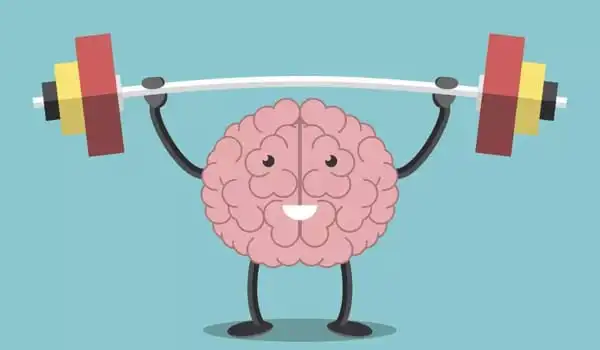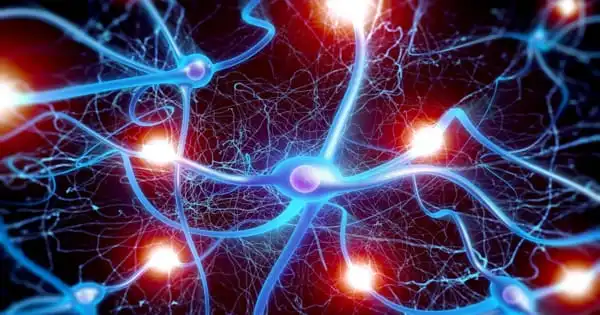A UC San Francisco study discovered that when elderly people stay active, their brains have more of a type of protein that strengthens the connections between neurons to maintain healthy cognition. This protective effect was found even in people whose brains were riddled with toxic proteins linked to Alzheimer’s and other neurodegenerative diseases at autopsy.
“Our work is the first to use human data to show that synaptic protein regulation is related to physical activity and may drive the beneficial cognitive outcomes we see,” said Kaitlin Casaletto, PhD, an assistant professor of neurology and lead author on the study, which appears in Alzheimer’s & Dementia: The Journal of the Alzheimer’s Association.
The beneficial effects of physical activity on cognition have been shown in mice but have been much harder to demonstrate in people.
Maintaining the integrity of these connections between neurons may be critical to preventing dementia, because the synapse is really where cognition happens. Physical activity, a readily available tool, may aid in improving synaptic functioning.
Kaitlin Casaletto
Casaletto, a neuropsychologist and member of the Weill Institute for Neurosciences, collaborated with William Honer, MD, a professor of psychiatry at the University of British Columbia and senior author of the study, to use data from Rush University in Chicago’s Memory and Aging Project. This study followed the late-life physical activity of elderly participants who agreed to donate their brains when they died.
“Maintaining the integrity of these connections between neurons may be critical to preventing dementia, because the synapse is really where cognition happens,” Casaletto said. “Physical activity, a readily available tool, may aid in improving synaptic functioning.”
Exercise improved the human brain’s ability to maintain old network connections and form new ones, both of which are essential for cognitive health. Other research has found that exercise increases the size of a brain structure important for memory and learning, resulting in improved spatial memory. Aerobic exercise, such as brisk walking, is thought to be better for cognitive health than nonaerobic stretching and toning. According to one study, the more time spent engaging in moderate levels of physical activity, the greater the increase in brain glucose metabolism — or how quickly the brain converts glucose into fuel — which may lower the risk of developing Alzheimer’s disease.

More Proteins Mean Better Nerve Signals
Honer and Casaletto discovered that active elderly people had higher levels of proteins that aid in the exchange of information between neurons. This finding corroborated Honer’s earlier finding that people who had more of these proteins in their brains when they died were better able to maintain cognition later in life.
Honer stated that the researchers were surprised to discover that the effects extended beyond the hippocampus, the brain’s seat of memory, to include other brain regions associated with cognitive function.
“Physical activity may have a global sustaining effect, supporting and stimulating the healthy function of proteins that facilitate synaptic transmission throughout the brain,” Honer speculated.
Synapses Safeguard Brains Showing Signs of Dementia
Most older people’s brains accumulate amyloid and tau, two toxic proteins that are hallmarks of Alzheimer’s disease pathology. Many scientists believe that amyloid builds up first, followed by tau, causing synapses and neurons to disintegrate.
Casaletto previously discovered that synaptic integrity, whether measured in living adults’ spinal fluid or autopsied adults’ brain tissue, appeared to dampen the relationship between amyloid and tau, as well as tau and neurodegeneration.
“This cascade of neurotoxicity that leads to Alzheimer’s disease appears to be attenuated in older adults with higher levels of the proteins associated with synaptic integrity,” she said. “Taken together, these two studies demonstrate the potential importance of maintaining synaptic health to protect the brain from Alzheimer’s disease.”
Being intellectually stimulated may be beneficial to the brain. People who participate in personally meaningful activities like volunteering or hobbies report feeling happier and healthier. Learning new skills can also help you think more clearly. One study, for example, discovered that older adults who learned quilting or digital photography improved their memory more than those who only socialized or engaged in less cognitively demanding activities. Some research on music, theater, dance, and creative writing has shown promise for improving quality of life and well-being in older adults, ranging from improved memory and self-esteem to reduced stress and increased social interaction.














